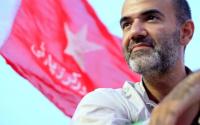The warning came as the Bush administration struggled to hold together an international coalition to force Iran to give up its nuclear programme. On Tuesday, Iran rejected a UN security council ultimatum to give up uranium enrichment by the end of this month, responding instead with a 21-page proposal for "serious talks". US diplomats said yesterday they were consulting their European allies on how to treat the proposal, in the face of Russian and Chinese reluctance to impose strong sanctions.
"We acknowledge that Iran considers its response as a serious offer, and we will review it," state department spokesman Gonzalo Gallegos said in a statement. "The response, however, falls short of the conditions set by the security council, which require the full and verifiable suspension of all enrichment-related and reprocessing activities. We are consulting closely, including with other members of the security council, on next steps."
A new report by the staff of the House of Representatives intelligence committee suggested that the administration was ill-equipped to drive a hard bargain. It found "significant gaps in our knowledge and understanding of the various areas of concern about Iran" and said "policymakers will need high-quality intelligence to assess Iranian intentions to prepare for any new round of negotiations".
Iran, by contrast, is widely considered to be in a strong negotiating position. Analysis published yesterday by the Royal Institute of International Affairs at Chatham House said there was "little doubt that Iran has been the chief beneficiary of the war on terror in the Middle East".
The report said Iran had gained from the defeat of two of its most immediate regional rivals, Saddam Hussein in Iraq and the Taliban in Afghanistan.
"The US-driven agenda for confronting Iran is severely compromised by the confident ease with which Iran sits in its region," it said. "Iran views Iraq as its own backyard and has now superseded the US as the most influential power there."
The month-long war between Hizbullah and Israel has strengthened Iran's regional influence further, because the Arab world perceived the US as uncritically backing Israel. Hizbullah, backed by Iran, saw its status soar in Arab public opinion for its ability to survive Israeli attacks.
UN diplomats said any concerted response to Iran's offer of talks would only come after a report on its nuclear programme by the International Atomic Energy Agency at the end of this month.






